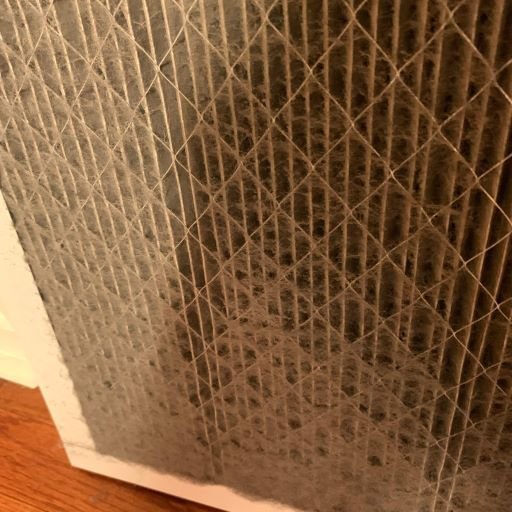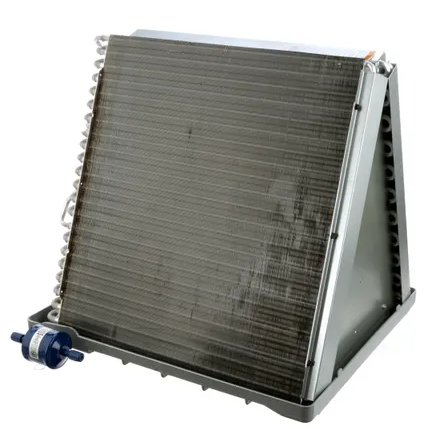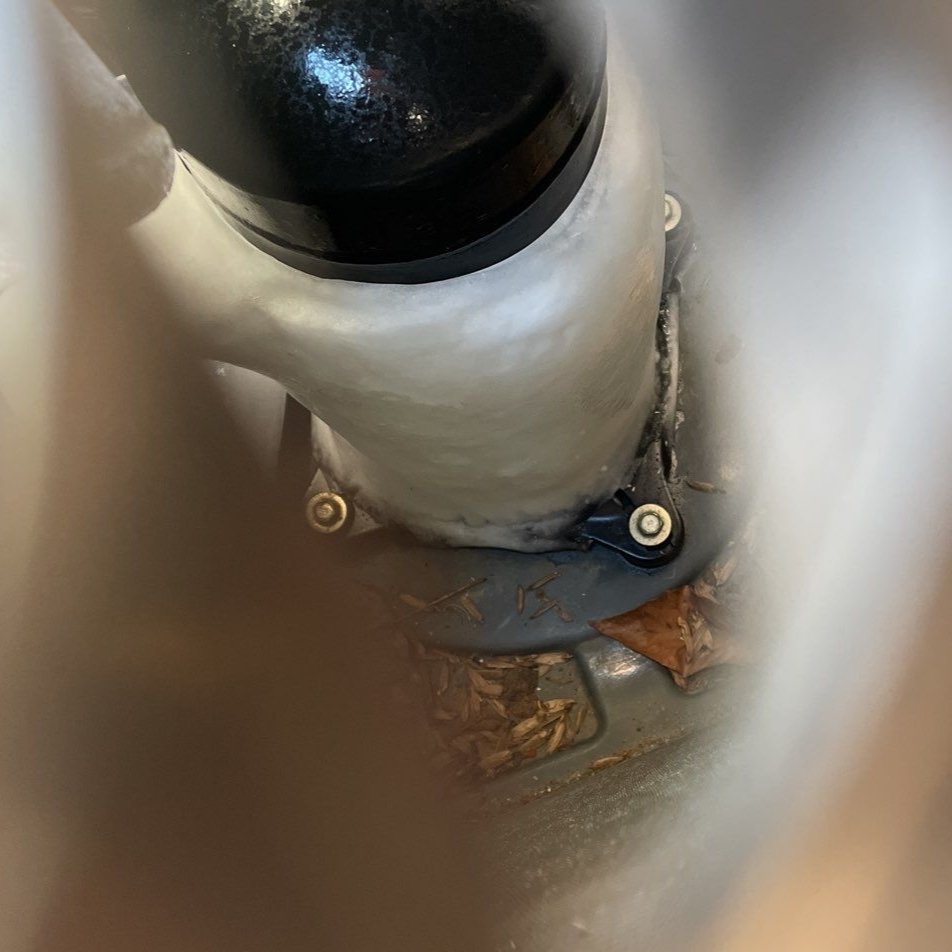Why is My AC Freezing Up?
Why do AC Units Freeze Up?
There are few things more uncomfortable and inconvenient in our modern lives than a malfunctioning air conditioner. This is especially true on a hot summer day.
Strangely, one of the most common ways an air conditioner can fail is by freezing up. And while seeing your AC freezing might seem like it’s simply working extra well, it’s an indication of some serious issues.
If you’ve found your air conditioner freezing, here are some reasons why that may be happening and how you can solve your AC freezing issue before it gets much, much worse.
Dirty Air Filter
One of the most common reasons for an air conditioner to freeze up is a dirty air filter. Your HVAC system relies on these filters being clean – otherwise, you’ll have insufficient airflow.
Even if every other part of your AC system is working perfectly, weak airflow through dirty air filters can lead to a seriously uncomfortable indoor environment without much cool air.
When air can’t pass through the evaporator coil properly, it develops a layer of ice. That’s why it’s essential to prevent these freeze-ups from changing every three to four months. Many manufacturers recommend changing your air filter each month – especially if you live in a high-activity home.
Remember that every time you open your windows and doors, you’re bringing in dust particles from the outside air. If you ever perform drywall work or other home renovations, you’ll probably kick up plenty of debris, even in a microscopic form that can clog an air filter over time.
Be mindful of these factors and keep your air filters as clean as possible year-round.
Mechanical Issues
Air conditioners often freeze up because of a faulty blower fan. If the fan isn’t working properly, it can cause issues with your entire heating and cooling system.
Not only can your AC unit freeze over, but it’ll lead to an overall decrease in your whole air conditioner’s performance.
So, not only will each room in your home be full of warm air during the heat of the summer, but you’ll also have significantly higher energy costs each month.
Inspecting the Blower Fan
As with inspecting the refrigerant levels in your AC unit, inspecting the blower fan should also be handled by a professional. Unless you’ve spent a lot of time working on frozen air condition system issues, such a task can be pretty challenging.
Your HVAC technician will check your motor’s condition, the rotational speed of the fan, and whether your air conditioner is getting adequate energy from its power source.
Outside Temperatures
Because the air around each evaporator coil can get cold during operation, your AC unit needs a steady stream of warm air so your coils don’t freeze over.
But when the temperature outside your home starts getting chilly, the refrigerant in your AC unit can freeze moisture before it ever gets the chance to circulate.
In other words, don’t use your air conditioner on cool nights. If it’s already 63 degrees outside, consider opening your windows rather than relying on cool air from your air conditioner. The last thing you want is to discover a frozen AC unit when the temperatures go back up.
Thermostat & Fan Settings
The way you set your thermostat and fan every day can have a real impact on how efficiently your system works.
For instance, if it’s the middle of August and you could cook an egg on the pavement outside, your AC fan needs to run at high speeds to keep your indoor environment cool.
If you keep your fan at a low speed, it’ll have trouble maintaining the right temperature and will have to do twice the work, straining your entire AC system.
When this happens, your system won’t reach the proper air circulation levels. The cold refrigerant moving through the unit can then cause ice to form on your evaporator coils.
You should never run your AC for long periods at extremely low temperatures, either. Like any other piece of equipment, your AC needs time to rest. But when you do run it, turn the fan speed up to ensure the air circulates through the entire system properly.
Dirty Ducts
Cooled or heated air has to have a proper passageway through your air conditioner system. If your ducts become dirty, clogged, or collapsed, it’ll prevent proper airflow to both the evaporator coil and indoor air vent. If that air isn’t flowing properly, you’ll most definitely find your AC freezing in no time.
If you notice poor airflow from your air vents, a lack of cold air, or vents that blow warm air when it should be cool, you may have an issue with your air ducts.
Then, your wisest course of action is to schedule an appointment with an HVAC professional to take a look at your air conditioning unit.
Dirty Coils
If it’s been a year or more since you last had an AC system tune-up, there’s a good chance your evaporator coil is covered in dust and grime. It’s all but guaranteed that most older AC models that haven’t been properly maintained are positively caked in gunk.
When your coil has a serious buildup like this, it hinders the transfer of heat between the coil and the refrigerant.
As the temperature falls due to a lack of this heat transfer, your coils will freeze and the rest of your system will ice over.
Clogged Condensate Drain Line
Your air conditioner works all day, every day to transfer heated or cooled air throughout your home. This air causes condensation from the moisture in the air, which should in normal circumstances drain away from your home through your air conditioner’s condensate drain line.
If this line in your outdoor unit has become clogged, the condensate drip tray may start overflowing with water. If your evaporator coil is too cold, that nearby water vapor can lead to a frozen HVAC system.
The only solution when you have debris clogging your outdoor AC unit drain line is to flush and clear it as soon as possible. Once again, this is best left to the experts!
Low Refrigerant Levels
Because your air conditioner is a closed system, refrigerant should never escape it. If your air conditioner has low refrigerant levels, it’s usually due to a refrigerant leak somewhere in the refrigerant lines or another component that handles refrigerant. Whether it’s the evaporator coil, the compressor, or otherwise, you may have trouble figuring out where the leak is.
If you suspect low refrigerant levels are the issue causing your air conditioner to freeze, you’ll need to get in touch with an HVAC technician ASAP.
Unlicensed individuals should avoid handling coolant chemicals as they’re strictly regulated by the Environmental Protection Agency. Your local HVAC techs have dealt with these coolants for many years and they know how to avoid wasting any costly refrigerant.
Faulty Compressor
The component at the heart of your HVAC unit is undoubtedly your compressor. The compressor is responsible for removing heat from your home by compressing the refrigerant.
If you haven’t had regular maintenance performed on your system, you’ll find your air conditioner freezes sooner or later, which is likely due to a worn-out compressor.
Since it can’t properly pump the refrigerant through your system, it’ll lead to frozen AC coils pretty quickly.
Unfortunately, there’s no real fix for a bad compressor. Your only solution is to replace it as soon as you can – with the help of an HVAC technician.
Clogged or Damaged Condenser Fins
The walls of the condenser unit of your air conditioning system are covered with small metal fins. These have to be cleaned regularly, or at least monitored to ensure they haven’t collected any debris.
These fins can also be bent or damaged, which leads to the same problem: improper air flow, and your air conditioner freezing.
The simplest way to keep this from happening is to hose your condenser unit’s fins down regularly. Also, if you see that any of the fins are bent, you can use a condenser fin comb to bend them back into position.
How to Fix Your Frozen Air Conditioner System
Let it Thaw
Your first step when you notice your air conditioner freezing should be to turn off the AC unit at the electrical breaker. By leaving it off, the ice should thaw over several hours up to an entire day. Your best bet would be to choose a day where you, your family, and any pets you may have won’t be stuck indoors.
Turn Your AC Off
While your air conditioner evaporator coils are frozen, you should avoid using it as much as possible. If you leave it running with frozen coils, you can cause severe strain on your AC compressor – the most expensive part of your AC system.
Don’t Damage Your System
Remember: never try dislodging the ice from a frozen air conditioning system with a hammer, knife, or otherwise. Your AC system has delicate components that could be damaged in this process, costing you far more money in repairs than you may have bargained for.
Dry It Out
Now that the ice has completely thawed, you need to remove the condensation remaining on your evaporator coils. This step is as simple as turning your AC system back on and turning on the blower, or fan, to full blast.
By doing so, you’ll circulate air throughout your air conditioning system and dry up any moisture on the evaporator coils.
Avoid DIY Repairs
AC unit frozen? Don’t risk damaging your system even more by attempting a DIY repair. Instead, try the above tips. If they don’t work and your home keeps getting hotter by the minute, you should probably reach out to a licensed, capable professional.
Conclusion
In conclusion, a freezing air conditioner is a common but significant problem that requires attention. Various factors can contribute to this issue, including a dirty air filter, mechanical problems like a faulty blower fan, low refrigerant levels, and even external factors like outside temperature. Understanding these causes is essential for homeowners to prevent and address the freezing of their AC units effectively. Regular maintenance, such as changing air filters, cleaning ducts and coils, and inspecting mechanical components, can significantly reduce the risk of freezing. However, in cases where DIY solutions are insufficient or the problem is complex, it's crucial to seek the expertise of a licensed HVAC technician. They have the skills and tools to diagnose and repair issues safely and efficiently, ensuring your air conditioner runs smoothly and effectively, and providing you with a comfortable and cool environment in your home. Remember, neglecting these issues can lead to more severe problems and higher repair costs in the long run. Therefore, proactive maintenance and timely professional intervention are key to keeping your AC in top condition and avoiding the discomfort of a freezing air conditioning system.




